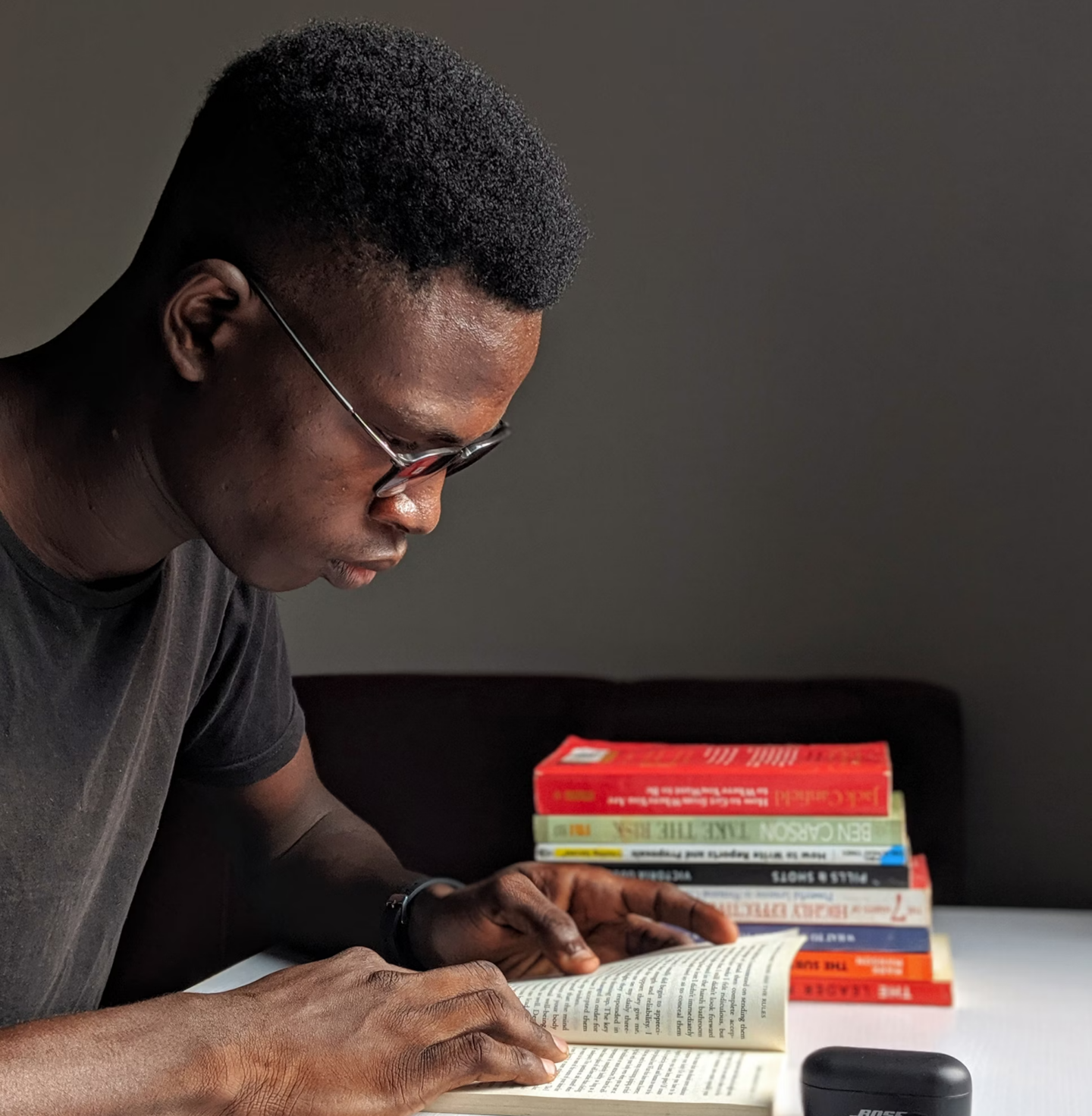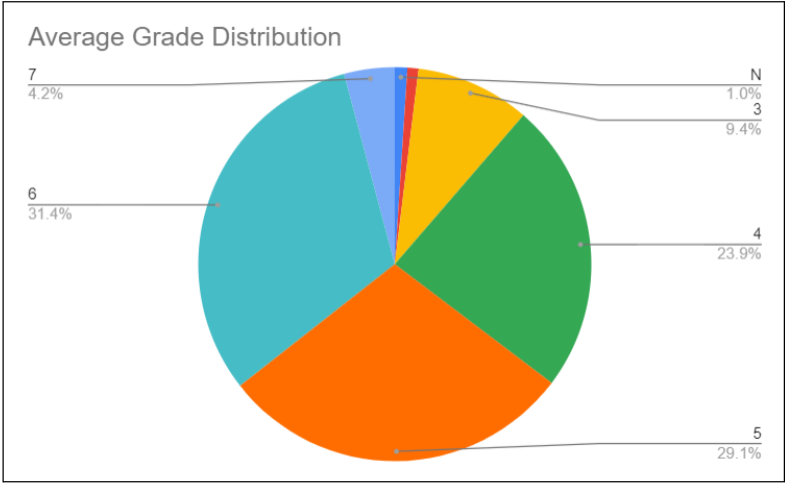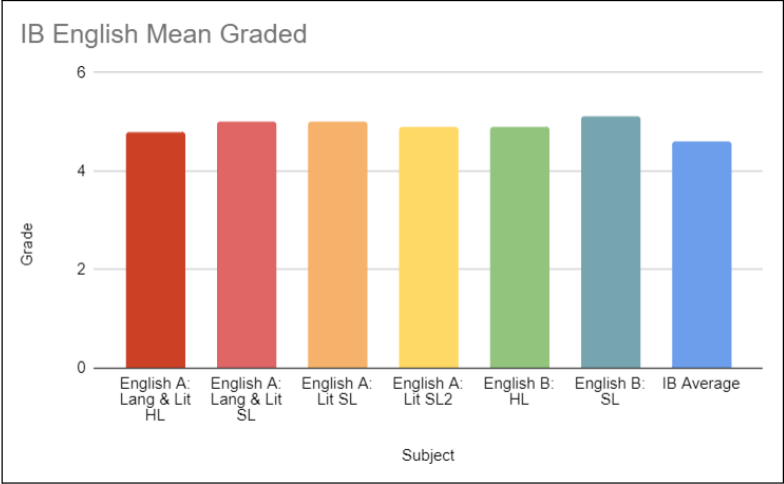IB English: The Complete Guide 2024

When it comes to IB English, the options available are varied, and can be confusing. Some mistakenly believe that it is only about literature or language.
While literature centers on scrutinising literary compositions and the techniques authors use to express their concepts, Language & Literature broadens its spectrum to encompass non-literary materials like propaganda, graphic novels, or even adverts.
All of this and more fall under the umbrella of IB English A. However, there is also the possibility of studying English B for students who are learning English as an additional language.
In this guide, you’ll learn how diverse the IB English options can be and what it takes to nail its assessments.
IB English Options
The International Baccalaureate programme offers a range of ways to explore the English language. Some invite students to a literary investigation, others help develop effective communication skills.
Overall, you have 4 options when it comes to learning IB English.
English A: Language and Literature (HL/SL)
The course focuses on studying the complex and dynamic nature of language, from its practical application to artistic potential. When choosing Language and Literature, you will get familiar with diverse text types and literary forms to understand how language choices can affect meaning. Apart from that, you will engage in lively discussions to get to know various points of view and interpretations. Finally, the course encourages students to explore the impact of cultural backgrounds on shaping perspectives.
English A: Literature (HL/SL)
With a sole focus on literature, the course reveals how it has affected cultures and societies throughout history. The main goal of Language A: Literature is to introduce students to the construction of literature works and authors’ intent. The latter is examined through the lens of culture and belief systems. At the same time, students have the opportunity to analyse how their own backgrounds can influence interpretations of literary texts.
Option 3: Literature and Performance (SL)
Launched in 2022 and first assessed in 2024, Literature and Performance is an innovative combination of Studies in Language and Arts. The course traces a transformation of literary works for theatrical performance. When taking this option, you will be able to hone your analytical skills through close reading and writing, as well as apply your knowledge to the theatrical context. All in all, this unique interdisciplinary journey allows excelling in both literary comprehension and theatrical expression.
English B
While the previous options belong to Group 1: Studies in Language and Literature, English B represents Group 2: Language Acquisition. In other words, this course helps develop language proficiency in students for whom English is not their native language.
The English B curriculum is organised around five prescribed themes: identities, experiences, human ingenuity, social organisation, and sharing the planet. Using various contexts and text types students get a chance to improve their reading, writing, listening, and speaking skills as well as use them in various situations. Overall, English B places an emphasis on communication skills but does not involve in-depth literary analysis.
Who Should Study IB English and Why?
Whether you’re a language enthusiast or a literature lover, IB English A and B alike will walk you through the world of words. However, while IB English A offers a comprehensive exploration of language and literature, the B course is about mastering communication and exploring culture.
IB English A
If you’re curious about different genres, time periods, and cultures, IB English A is exactly the right thing. This course will introduce you to the diverse literary landscape, from timeless classics to contemporary novels. Through text analyses, you will be able to improve your critical thinking skills, as well as broaden your perspectives to understand different viewpoints.

This exploration also allows for fostering empathy and connecting with characters across cultural boundaries.
But IB English A isn’t just about reading literature; it’s about expressing yourself effectively. Thanks to such activities as analyses, work comparisons, and creative writing, you’ll learn to use language with precision and power. Furthermore, class discussions and presentations are able to hone your ability to communicate clearly and consider various audiences. In the end, you will receive valuable skills to achieve success in further study and work.
Along with this, you should take English A if you want to improve your research skills. During your time in class as well as when you sit your exams, you will have to complete numerous written tasks introducing you to varied literary topics. A faculty to engage with unfamiliar material under pressure will come in handy during your time in a university and in any future endeavours.
Literature and Performance
Are you into arts? Do you thrive in creative and active learning environments? Or maybe you enjoy working collaboratively with others? If your answer is ‘yes’ to any of these questions, Literature and Performance is the right way to go.
This course isn’t just about studying literature and performance as separate subjects. It’s about weaving them together to create a transformative experience. Imagine dissecting Shakespeare’s sonnets through movement or bringing a contemporary poem to life on stage.
By analysing literature through the lens of performance, you can gain a fresh understanding of literary works, their themes, and characters. Conversely, grounding your theatrical performance in a literary foundation helps cultivate a deeper sensitivity to the artistic process.
In today’s world, the ability to merge different fields of study is crucial. The Literature and Performance does just that. Interdisciplinary, communicative, and collaborative skills gained during the course will serve you well in your future studies and work life.
What Do Universities Think of the New Course IB Literature and Performance?
Our university expert Dr Daniele Labriola notes that “as IB Literature and Performance is a new addition, it is always worth checking with a given uni admissions team what their stance on the course is. I would always say that it’s in a students best interest to have confirmation in writing from a given university. Simply to confirm that IB Literature and Performance will be treated the same as Lit and Lang or simply Lang. This will avoid any nasty surprises.”
English B: For Those Wishing to Improve their Command of English
IB English B focuses on building a strong foundation in English language acquisition. This course is ideal for students who want to master the nuances of English and develop confident communication skills in various contexts.
While you should expect grammar drills and vocabulary expansion, English B also gives an opportunity to develop your interactive skills in real-world situations. You’ll get to work with diverse text types, from news articles to personal essays, to learn how language shapes meaning and communication. By the end of the course, you should be able to express yourself clearly and effectively in both academic and everyday situations.
No less important is the cultural aspect. Introduction to the legacy of English-speaking communities you can provide a deeper understanding of the world around you.
Ultimately, the choice between A and B depends on your individual interests and goals. If you’re drawn to a broader literary journey and communication development, English A might be your perfect fit. On the other hand, if you’re a non-native speaker seeking to build strong communication skills, your choice is IB English B.
Most importantly, remember your teachers can advise you on whether your English is of a higher enough standard for Language A. They know you better then most and will be able to give you good advice.
Is IB English Hard?
Whether English is hard depends on who you ask and what you mean by “hard.” Just as with any other IB subject, some find it a breeze, while others struggle just getting started. So, the level of difficulty is entirely subjective.
Having said that, some aspects of IB English are objectively challenging:
- Complexity. As an IB English student, you need to have strong reading, writing, and analysis skills, as well as a good understanding of grammar and vocabulary. Moreover, tackling diverse text types requires critical thinking and independent research. In other words, it is a demanding course.
- Workload. There are written assignments every week, and that’s besides regular reading and writing tasks. The sheer volume of reading, writing, and assignments can feel overwhelming, especially when combined with other demanding subjects. This is particularly true of English A when you will need to be a regular reader of thought-provoking and literary texts.
- Intellectual Depth. Engaging with complex themes, analysing texts critically, and participating in meaningful discussions will push you to think outside your comfort zone in IB English A. While being rewarding and stimulating, IB English is also intellectually challenging.
- Cultural nuances. Idioms, metaphors, and cultural references can be confusing for those coming from different cultural backgrounds.
Considering all of this, IB English can be hard, but it is far from being the hardest subject in the Diploma Programme. Statistically, Sciences and Math have the lowest average grades, which may be an indicator of difficulty. When we look at English, the average between 4.8 (English A: Language And Literature HL) and 5.1 (English B SL) is higher than IB’s mean grade of 4.6.


Overall, whether IB English is hard or not depends on your abilities and mindset. If you naturally excel in language and literature, the coursework is going to be manageable. For others, specific aspects like grammar or literary analysis might pose a challenge.
What Level of English A should I Choose for the IB Programme: SL or HL?
The main difference between Standard Level (SL) and Higher Level (HL) boils down to depth and intensity. In both English Literature and English Language & Literature, you’ll analyse texts from different eras and cultures. But in HL, you’ll delve deeper, tackling more complex themes and putting your analytical skills to the test.
English Literature:
- SL studies diverse literary pieces from various genres and eras.
- HL introduces a broader range of texts and more complex themes.
English Language & Literature:
- SL explores how language bends to different contexts. Besides literary works, students get to know various text types (news articles, etc.) to see how language comes alive.
- HL requires even more in terms of analyses and workload. You’ll work with more texts to explore the intricate relationship between language and the world around us.
Ultimately, the choice between SL and HL depends on your abilities and your other choices of HL and SL for other subjects. If you have a passion for literature and a thirst for in-depth exploration, then HL might be your best bet. However, if you just want a solid foundation in working with diverse texts and you already have your other HL courses identified, then SL will be a better option.
You should also remember that HL comes with a heftier workload spanning 240 hours. This means more reading, more writing, and there is even an extra 1200-1500 word essay at the end. So, you need to be honest with yourself about your time management skills and commitment level.By choosing SL English are students restricting their choices for studying at English speaking universities in UK, USA and beyond?
We asked this question to our college applications expert Dr Daniele Labriola. He commented that “potentially this will be the case, especially at UK universities. A strong Russell Group University, will insist on English Literature or Lang and Lit at HL.” In the USA the situation is a little different and he goes on to say that “technically, the average American university does not set down such an explicit demand. Yet it would certainly expect the student to demonstrate ability at or above what is encountered in HL Lit and Lang”.
This means that de facto, for most students undertaking the IB, they will need to take English at HL no matter where they are looking to go, presuming they are aiming for a strong university.
Book free trial with our certified IB English teachers today
100 % of tutors are certified teachers and examiners
Does the choice of HL or SL English make an impact on university course choices?
Absolutely, it does. For UK unis, most of the top tier unis demand English HL, middling ones ‘prefer it’. For US unis, most of the top tier tacitly expect HL English.
So if you are choosing SL IB English it is important to do your research, looking at potential university choices and courses and understanding whether the choice of SL will rule out too many options.
What Are the Differences Between IB English Language and Literature and IB English Literature and How Do Their Assessments Differ?
The IB Literature course centers on the study of literary texts, exploring textual criticism, the essence of literature, and its broader societal relevance. Students engage with works from three categories: translations, original language texts, plus free choice selections. Often students are given the chance to shape the reading list.
Assessment comprises two papers: Paper 1 involves analysing passages from diverse literary forms, while Paper 2 requires a comparative essay using two studied works. Additionally, students have to deliver an Individual Oral presentation addressing a chosen global issue, and write an extended essay on a single work for Higher Level (HL) students.
In contrast, IB Language & Literature examines not only literary works but also non-literary texts across various media. This course explores the role of English language usage in shaping everyday life, identity, and culture through three core components: Readers, writers, and texts; Time and space; and Intertextuality.
Assessment mirrors that of the Literature course, with two papers covering textual analysis and comparative essays, alongside a 15-minute oral presentation on a global issue presented in studied texts. HL students also submit a 1200-1500-word essay on a non-literary or literary text.
While structurally similar, the courses differ in their daily focus, with Literature emphasizing literary analysis and Language & Literature exploring language’s broader societal impact.
IB English Assessment – How is it Done?
The structure of IB English assessment depends on a specific course and level. Here, we give you the full breakdown so that you know what you can expect from each course.
IB English A
Paper 1: Guided Analyses. In this skills-based external assessment, you will have to showcase your ability to dissect unfamiliar texts and analyse their meanings. SL students choose one text passage to work with white at HL, students analyse two.
When it comes to text types, Literature offers an assortment of genres such as play excerpts and non-fiction pieces. In Language and Literature, you can expect non-literary texts, for instance, cartoons or advertisements.
Paper 1 contributes 35% to your final grade.
Paper 2: Comparative Essay. During this external exam, you need to choose two literary works you’ve studied and delve into their similarities and differences. You cannot reuse works you explored in Individual Oral or HL Essay. A prescribed question (you should choose one out of four) will guide your analysis. Remember, you must stick to literary works only whether you study Literature or Language and Literature.
Paper 2 constitutes 35% of your final score if you are at SL, and 25% for HL.
Paper 3: Essay (For HL Students Only). This component represents your reflections on one of literary or non-literary (only if you study Language and Literature) works. In a 1200-1500-word essay, you need to connect your analysis to one of the course concepts. These are Identity, Culture, Creativity, Communication, Perspective, Transformation, and Representation.
Paper 3 weighs 20% of a final grade for those studying English at Higher Level.
In a nutshell, it is an interactive 15-minute conversation with your teacher about two literary works you’ve studied. As an HL student, you can showcase your linguistic skills by choosing works from different languages (one translated), while SL students focus on one language.
There is a lot you can do to improve your IO grade by following some simple steps in your preparation. This article explains more about how to best prepare Individual Oral.
At SL, the oral assessment represents 30% of your final grade while its weight is 20% at HL.
Literature and Performance
The IB English Literature and Performance course is a combination of text, performance, and critical analysis. As a unique approach to studying language, it also provides an exam format that is different to English A courses.
Paper 1: Comparative Essay
This assessment mirrors Paper 2 of language and literature courses. In particular, you need to pick one question from four prompts and write a comparative essay analysing two studied works. Paper 1 makes up 30% of the final score.
Written Assignment: Performance Analysis. With a focus on the performance aspect, this 2000-word essay requires you to analyse an extract from a dramatic work you performed. The essay should explain how your choices brought the text to life on stage. This demands both critical analysis and reflective insight into your performance experience.
The written assignment carries a weight of 30% in your final grade.
Internal Assessment. It consists of two parts: Transformative Performance and Individual Oral.
First, students turn an extract from one of the literary works into a performance. Although given only 10 minutes, they need to show their skill in script adaptation, character interpretation, and stage presence.
The following 15 minutes are a reflection on your creative journey. The Individual Oral is your chance to explain how you transformed the text prompt into a performance. You should discuss your choices, challenges, and artistic vision. This assessment tests your ability to articulate your creative process and connect it to literary analysis.
Transformative Performance and Individual Oral account for 40% of your overall score.
English B
IB English B is not about literature analyses. Rather, it is about mastering a foreign language if English is not your mother tongue. For this reason, its curriculum and assessment structure are entirely different to those of English A. In particular, assessment involves the following parts:
Paper 1: Writing Skills Assessment
You need to choose one writing task from three options. This test is designed to show how well you can express yourself in different styles and formats. Although the format is the same for SL and HL alike, those who study English B at Higher Level should use more complex language and deeper thinking. Writing is worth 25% of the final grade.
Paper 2: Listening and Writing
As its name suggests, Paper 2 consists of two sections:
- Listening. It involves listening to audio recordings and answering questions to show an understanding of spoken English.
- Reading. The assessment offers different texts, from articles to stories. After reading and analysing them, students answer a series of questions.
Listening and reading comprehension hold considerable weight in your final assessment, with a combined value of 50%.
Individual Oral
It tests your ability to speak confidently and think on your feet. Specifically, you will be engaged in a one-on-one conversation with a teacher based on a picture (SL) or a literary excerpt (HL). The final stage of your IB English exam contributes 25% to your total score.
How to Best Study IB English
Whether you are taking IB English A, Literature and Performance, or IB English B, you need to work hard and smart to achieve your goals. Here are some tips on how to best study IB English and ace your exams.
Explore the Curriculum
First thing first, you have to understand what IB English is all about. That’s why, it is important to get to know the curriculum. It is like a map guiding you through the topics, texts, skills you’ll be using, assignments, and assessment criteria. You need a clear idea of what to expect and how to plan your studies accordingly – the IB English curriculum can provide exactly that.
Our tutors recommend using this curriculum outline as a guide to ensure you have mastered each section before you move onto the next one.
Seek Support When You Need It
Sometimes, studying IB English on your own can feel overwhelming. There may be many stumbling blocks on your way – complex text analyses, essay writing, or preparing for an oral presentation. If you feel like you need some extra help or feedback, don’t hesitate to seek tutoring.
A professional tutor can provide personalized support to boost your confidence and performance. At TutorsPlus, we are proud to have experienced and qualified IB English tutors on our team. Whether you need to enhance your skills, refine your writing, or get ready for your exams, they are happy to give you the knowledge and strategies to conquer any challenge.
Utilize a Variety of Learning Materials and Resources
Although IB English has a list of prescribed literature, the curriculum doesn’t feature the exact topics you’ll cover during the course. This makes English more flexible than other IB subjects yet more challenging since you’ll need to go beyond assigned texts to explore the diversity of the language and its cultural aspects.

Various learning materials will not only broaden your perspectives but also give you a deeper appreciation of English. You can consult online summaries, podcasts, videos, blogs, forums, and academic journals for supplementary commentary and analysis. Additionally, look to high-quality books and anthologies for further reading.
Be Persistent and Patient
A two-year IB journey is both exciting and tough. There are likely to be some difficulties along the way, but so are rewards such as personal growth and better comprehension of the world or words. To end it on a high note, you need to be persistent and patient:
- Don’t give up. You encountered an obstacle or made a mistake? Learn from it and try again.
- Set realistic goals. You need to realise that you can’t learn everything the night before your exam. Instead, make learning a gradual process. One text at a time, and you’ll be able to build a solid foundation standing strong under exam pressure.
- Focus on your journey. Comparing yourself to others may hinder your growth. Don’t get discouraged if someone has a faster pace. It is better to focus on your own progress and improvement at a pace comfortable to you.
Conclusion
The world of IB English is vast. If language is your passion, the course will become a rewarding adventure, which sharpens your mind and broadens your horizons. However, if you struggle with words, the road to mastery might not be so smooth.
Luckily, you don’t have to walk it alone. Let an experienced tutor be your partner in investigating the intricacies of English. Whether you struggle with writing or feel your analysis leaves much to be desired, allow us, TutorsPlus, to maximise your potential.
So, do you want to express your ideas with confidence? Then contact us at +41 022 731 8148 or . We can help make IB English a transformative experience!
FAQ
Is there a list of recommended textbooks or resources for IB English?
Unfortunately, there isn’t one definitive list of recommended textbooks or resources for IB English as the curriculum allows for flexibility. The specific recommendations will depend on the sub-course you’re taking (English A Literature, English A Language and Literature, etc.), your learning style (do you prefer interactive learning or in-depth exploration?), as well as your current strengths and weaknesses.
Having said that, you can build your own list based on your needs. Here are some resources you can use:
Official IB Materials:
- Past papers. These can give you an idea of the structure and style of questions you can expect in your exam. Moreover, practising with past papers is an excellent way to prepare for the pressure of a written assessment under limited time conditions.
- Examiner reports. They point out the most common errors as well as areas students tend to struggle with.
Online Platforms
- Kognity. Kognity combines engaging interactive content with instant feedback. It is ideal for visual learners.
- ThinkIB. It is worth trying if you seek in-depth analysis and detailed guides from experienced IB teachers.
Guides and Textbooks:
- “English A: Language and Literature Course Companion” by Rob Allison and Brian Chanen.
- “Oxford IB Diploma Programme: IB Prepared: English A Language and Literature” by Rob Allison and Brian Chanen.
- “IB English A: Language Literature Course Companion” by Hannah Tyson and Mark Beverley.
- “The Norton Anthology of English Literature”.
- “Oxford IB Diploma Programme: IB Prepared: English A Literature” by Anna Androulaki and Author Brent Whitted.
- “IB Prepared: English B” by Kevin Morley
- “Oxford IB Diploma Programme: IB English B Enhanced Online Course Book” by Kawther Saa’d Aldin and Kevin Morley
- “English B for the IB Diploma Coursebook with Digital Access” by Brad Philpot.
Literary Analysis Websites:
- Shmoop. Ideal for in-depth analysis and explanations of complex texts and literary concepts.
- SparkNotes. Provides summaries, analysis, character studies, and quizzes for those who want to better understand literature.
What should students consider for their IB English choice if they want to pursue an English degree after finishing school?
A top to mid-tier university English course/major will expect IB English at HL to show a grasp of English suitable for the demands of university.
Our University counsellor Dr Daniele Labriola states that “the only real debate/choice revolves around which English IB suits the student best? English Literature or English Language & Literature? For those that have a stronger grasp of language, and indeed are considering complementing their Literature studies at university with language/linguistics, then the latter IB subject is the most logical option”.
To keep University options open what general advice should students consider when making their IB English course selection?
It helps to work backwards from university. Where do they want to go? How serious are they about pursuing English as a course? Does it form part of a brace of intended studies (a double major, in American uni terminology)? And, as always mentioned, how high are they aiming? Certain universities insist on HL. Is the student ambitious and able enough to take up the challenge?
What are the university course/ career opportunities for students excelling in IB English?
English graduates often find opportunities in fields such as publishing, journalism, and teaching. However, their skills are also valued in diverse sectors including, government (both central and local)local, business and finance, arts and culture, media and film. According to a survey by the Higher Education Statistics Agency (HESA), many English students continue their education by pursuing Master’s and PhD programs, as well as postgraduate courses in related fields.
By Sara Lloyd
Sara has been an education consultant for TutorsPlus for 15 years, and is an expert on international IB education. She is also a parent of two lively children.















